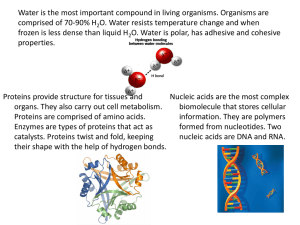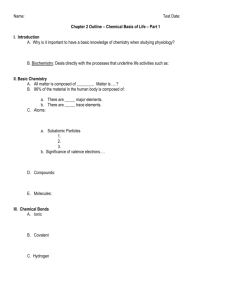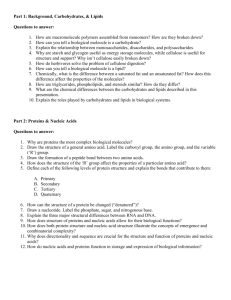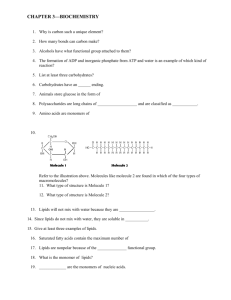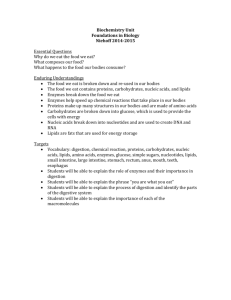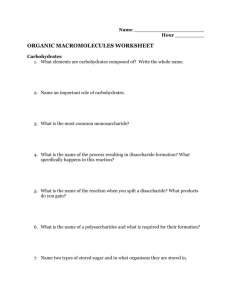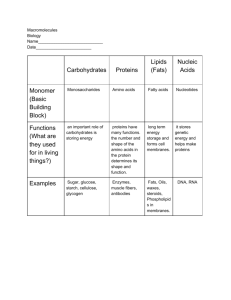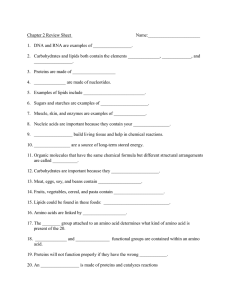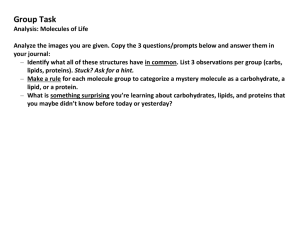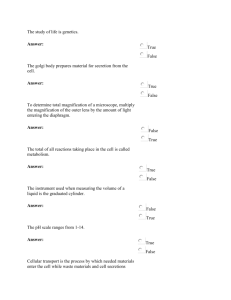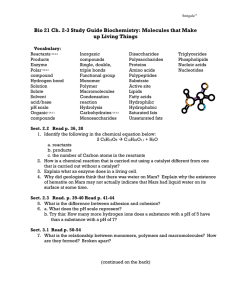Bio-molecules
advertisement
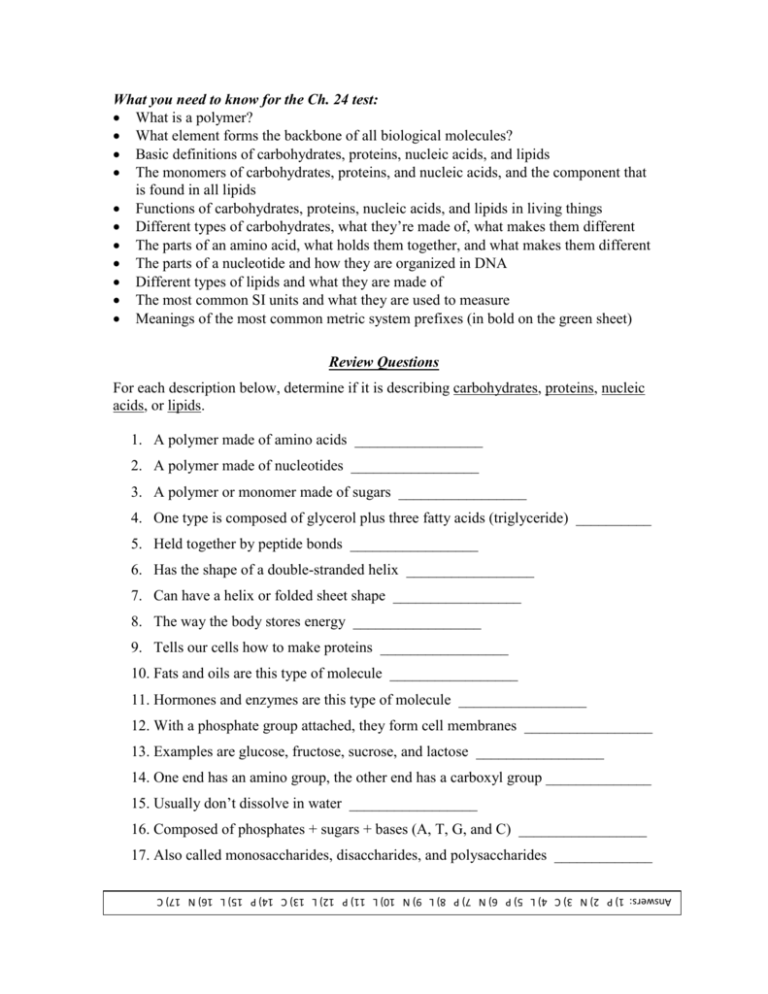
What you need to know for the Ch. 24 test: What is a polymer? What element forms the backbone of all biological molecules? Basic definitions of carbohydrates, proteins, nucleic acids, and lipids The monomers of carbohydrates, proteins, and nucleic acids, and the component that is found in all lipids Functions of carbohydrates, proteins, nucleic acids, and lipids in living things Different types of carbohydrates, what they’re made of, what makes them different The parts of an amino acid, what holds them together, and what makes them different The parts of a nucleotide and how they are organized in DNA Different types of lipids and what they are made of The most common SI units and what they are used to measure Meanings of the most common metric system prefixes (in bold on the green sheet) Review Questions For each description below, determine if it is describing carbohydrates, proteins, nucleic acids, or lipids. 1. A polymer made of amino acids _________________ 2. A polymer made of nucleotides _________________ 3. A polymer or monomer made of sugars _________________ 4. One type is composed of glycerol plus three fatty acids (triglyceride) __________ 5. Held together by peptide bonds _________________ 6. Has the shape of a double-stranded helix _________________ 7. Can have a helix or folded sheet shape _________________ 8. The way the body stores energy _________________ 9. Tells our cells how to make proteins _________________ 10. Fats and oils are this type of molecule _________________ 11. Hormones and enzymes are this type of molecule _________________ 12. With a phosphate group attached, they form cell membranes _________________ 13. Examples are glucose, fructose, sucrose, and lactose _________________ 14. One end has an amino group, the other end has a carboxyl group ______________ 15. Usually don’t dissolve in water _________________ 16. Composed of phosphates + sugars + bases (A, T, G, and C) _________________ 17. Also called monosaccharides, disaccharides, and polysaccharides _____________ Answers: 1) P 2) N 3) C 4) L 5) P 6) N 7) P 8) L 9) N 10) L 11) P 12) L 13) C 14) P 15) L 16) N 17) C
